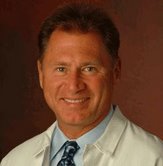Dr. Wayne Andersen, the Medical Director of Medifast and the chief architect of Take Shape for Life, joins us again this week as a featured guest blogger. His book, Habits of Health (releasing this month), provides the knowledge and support needed to achieve optimal health. He also manages his own health-minded blog. You can see Dr. Andersen here at DietsInReview.com every Tuesday during July! If you missed last week’s post about Optimal Health, view it now.
 I am a firm believer in using the portion-controlled meal replacements. It is crucial to eat every three hours, and portion-controlled meal replacements (PCMRs) make this process a lot easier.
I am a firm believer in using the portion-controlled meal replacements. It is crucial to eat every three hours, and portion-controlled meal replacements (PCMRs) make this process a lot easier.
In my upcoming book “Habits of Heath,” I talk about PCMRs being the “Healthy Fast Food for the Twenty-first Century.” Our lives are so busy that is it often difficult to actually sit down and plan meals. Most of us just go, go, go until we are so hungry and hypoglycemic that we make the impulse decision to pull over and grab some McDonalds.
This is the same mentality that’s given rise to the fast food phenomenon and the “Golden Arches,” which is now a $129 billion a year business. Look at it this way, if you were driving your car on a long road trip, wouldn’t you make sure your gas tank was full before you started your journey? Well, then why do so many people get in such a hurry that they make the decision to skip breakfast, or worse, call grabbing a Starbucks Coffee and pastry eating breakfast?
We can’t afford to wait to fuel our bodies until they are screaming for food and then make the decision to fill up at an unhealthy fast-food fueling station. This is where PCMRs come in, a convenient alternative to support my “Habits of Health” program.
Medifast makes the PCMRs that I use successfully, the company I am currently medical director for. With nearly thirty years of efficacy and safety, Medifast’s meal are backed by research studies from prestigious institutions such as Johns Hopkins.
Here are a few of the reasons I am an advocate of PCMRs:
· They help you control calories.
· They offer plenty of variety.
· They’re cost effective.
What are your experiences with PCMRs?

Could you explain why “it is crucial to eat every three hours…”? None of the nationally-recognized expert nutrition panels recommend such frequent eating. That’s eight times a day. Many of us know people who routinely go 4, 5, 6, even 8 hours without eating, yet they seem happy and healthy.
Be aware that symptomatic hypoglycemia is not nearly as common as is implied by Dr. Andersen.
-Steve
Dear Dr. Parker,
Thanks for your insightful question. First , the average fuelings are more like 5 or 6 times a day if the person is sleeping the average 7 hours to support optimal health.
Second I am advocating smaller healthy low glycemic meals to minimize cravings, turn off the insulin pump and resulting fat storage, and to introduce food loads that minimize the inflammatory state.
Here are some of the other benefits of eating smallere more frequent fuelings:
help you lose weight
• control hunger
• reduce blood insulin (a factor in fat storage and infl ammation)
• lower total cholesterol levels
• reduce LDL (“bad”) cholesterol
• reduce levels of apolipoprotein b (the “very bad” stuff!)
• depress glucose levels
• increase bile acid secretion
• suppress free fatty acids levels
• reduce serum uric acid levels, a common risk factor for coronary heart
disease
• increase urinary uric acid excretion
• reduce adipose tissue enzyme levels
• reduce fluctuations in satiety (fullness)
Also the thermic effect of food is higher if we eat smaller higher protien content meals more often.
Although I agree some people when they are younger can go all day without eating and appear healthy the physiologic stress with cortisol, epinephrine, and norepinephrine release probably isn’t ideal over time.
Also studies show that people that skip breakfast actually consume more calories and weigh more than people who eat breakfast.
The national weight control registry has shown people who eat breakfast are more successful at maintaining their weight loss than those that skip meals.
67% of our population is overweight or obese, 70 million AMericans have hyperinsulinism and are putting their health at increased risk.Over the last 7 years I have helped thousands of people that have found smaller more frequent fuelings help them reach and maintain an healthy weight more easily.
Symptomatic hypoglycemia is not that common but it also is helped by appyling these principles giving the body a more managable control of their glucose insulin response curve.
Best, Dr.A